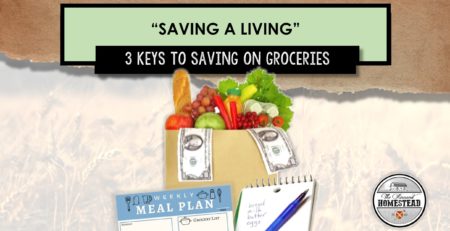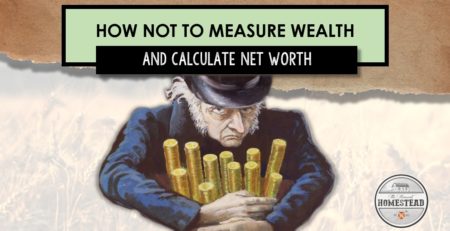Thoughts on Stewardship
One of the things I thought might be helpful to share with those who have taken an interest in our homestead are some thoughts on the topic of stewardship. There are several lessons that we have learned along our journey that have made a real difference for us, and we imagine could make a real difference for others as well.
We sometimes get questions—and I know we get a whole lot of raised eyebrows—when people find out that a couple of years ago I made the big and somewhat scary decision to give up my full-time status at the office where I’ve had the privilege of working for 15 years. Back in January 2019, I officially dropped to part-time, voluntarily cutting a big percentage of my hours and pay.
Also, as a bi-vocational pastor at a relatively small church where I’ve also had the privilege of serving for 15 years, there were many of those years where, in an effort to serve the church and to free it’s budget to be used for other needs, I turned down any compensation in order to minister to the people free-of-charge.
In addition to that, early in our marriage, Amy and I made the decision that we wanted her to stay at home to focus primarily on being a wife and mother. We agreed we didn’t want to grow dependent on her needing to work outside the home to bring in a second income, so for most of our almost 14 years of marriage, Amy has not brought in a traditional paycheck to add to the family coffers.
Aware of these things, people often ask how we have made all that work. What does it look like behind the scenes, and even on paper in the family budget, to accommodate such cuts in one’s take-home income and yet still make relative progress in their overall stewardship goals?
The answer I would point to comes back to stewardship. “Stewardship,” if you’re unfamiliar with the word, is a major biblical theme and one which Christians often use to talk about their responsibilities of faithfully managing the resources God has given them in life.
Our conviction is that there is nothing that any of us have, or earn, or acquire that really even belongs to us, but that it’s all the property of the Creator who, by his own good pleasure, has temporarily stewarded us—all to different degrees and in different proportions—what we have, ideally to be used for whatever purposes he intends.
The whole topic of stewardship assumes there are both “faithful” and “unfaithful” ways to steward. It assumes there are “right” and there are “wrong” ways to manage resources. And, all things being equal, there are principles, both biblical and common, that when applied or not applied, as the case may be, produce results that can be anticipated.
I say “all things being equal,” of course, because there is an element of God’s providence and grace in all of this that ultimately influences all of our circumstances. I understand that. But, as much as it depends on us, there are different ways and different methods of stewardship that by design produce different calculated results. You give two men a dollar and have them go their separate ways, one will potentially waste his dollar and the other find a way to multiply it.
I will admit to you that there are probably plenty of dollars that our family has wasted over the years. But, by God’s grace, we haven’t wasted all of them. To his credit, I think we’ve even learned how to multiply some of them and to steward them in a deliberate way.
So, my plan in some upcoming posts is to share some of what we’re doing as relates to stewardship so that you can see on a practical level how we think and how that translates into what has proven to work for us. Lord willing, there may be something we can share that makes a difference in someone else’s stewardship goals as well.
Stay tuned for upcoming posts in this new stewardship series.














Leave a Reply